June 1, 2025 | 05:25 GMT +7
June 1, 2025 | 05:25 GMT +7
Hotline: 0913.378.918
June 1, 2025 | 05:25 GMT +7
Hotline: 0913.378.918
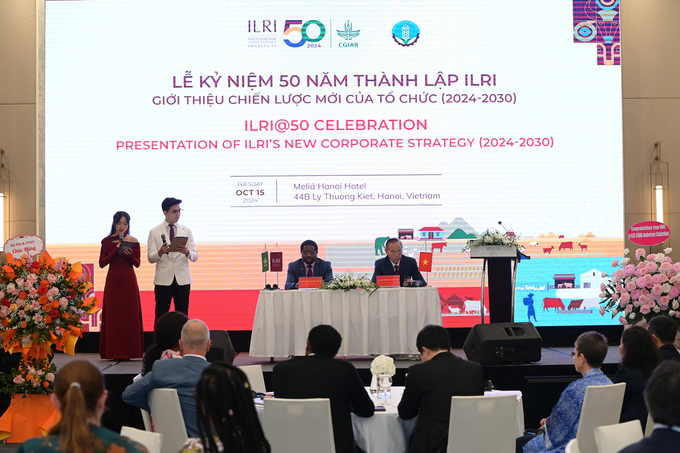
The year 2024 marks the 50th anniversary of the International Livestock Research Institute (ILRI), a center under CGIAR. On October 15, the ILRI@50 celebration was held in Hanoi with the attandance of Deputy Minister of Agriculture and Rural Development Phung Duc Tien and Professor Appolinaire Djikeng, Director General of ILRI.
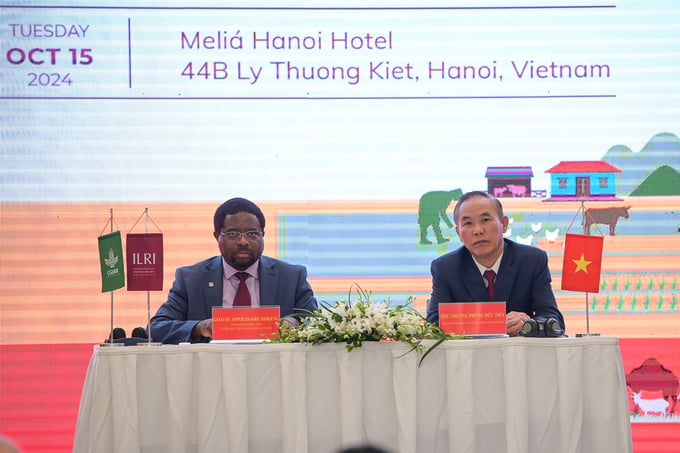
Since 1999, ILRI has been a key partner in Vietnam's livestock sector, implementing a number of important research projects ranging from food safety, animal health, to climate change and sustainable livestock production. In 2006, ILRI officially established its office in Vietnam, focusing on areas such as food safety, animal health, One Health, and improving livestock productivity.

Speaking at the celebration, Professor Appolinaire Djikeng, ILRI's Director General,emphasized that the new Strategy represents ILRI's commitment to addressing globalissues through innovation, providing scalable and adaptable sustainable livestocksolutions tailored to local contexts, and promoting policy and targeted investmentchanges to improve livelihoods while protecting the environment.
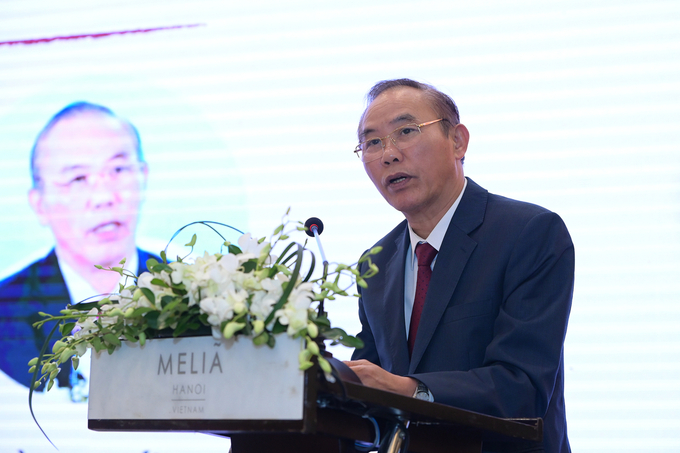
On behalf of the Ministry of Agriculture and Rural Development (MARD) of Vietnam, ILRI's main partner, Vice Minister Phung Duc Tien extended warm congratulations to the leadership, staff, and scientists of ILRI and CGIAR for their contributions to ILRI’s global and particularly Vietnam's development in recent years. The Vice Minister reaffirmed MARD’s commitment to continue partnering and expanding cooperation with ILRI, along with other domestic and international partners, to achieve practical results, ensuring better lives for people, healthier livestock, and a more sustainable environment, not only in Vietnam but globally.
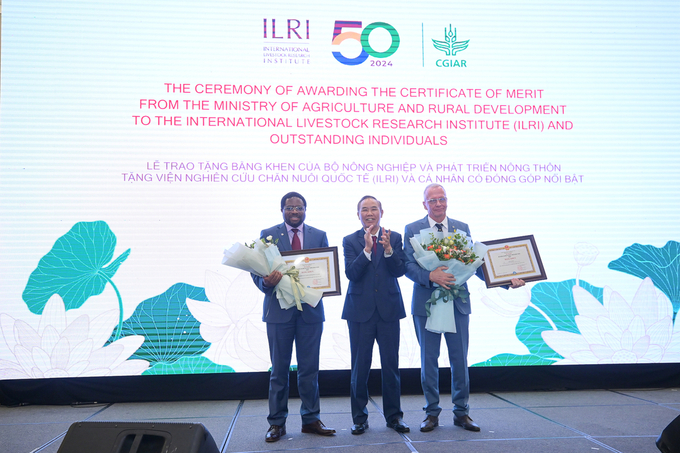
To recognize and tribune the contributions during the 25 years of cooperation, Deputy Minister Phung Duc Tien, on behalf of MARD, presented two Certificates of merit to the International Livestock Research and Institute and Dr. Fred Unger, Regional Representative for ILRI.
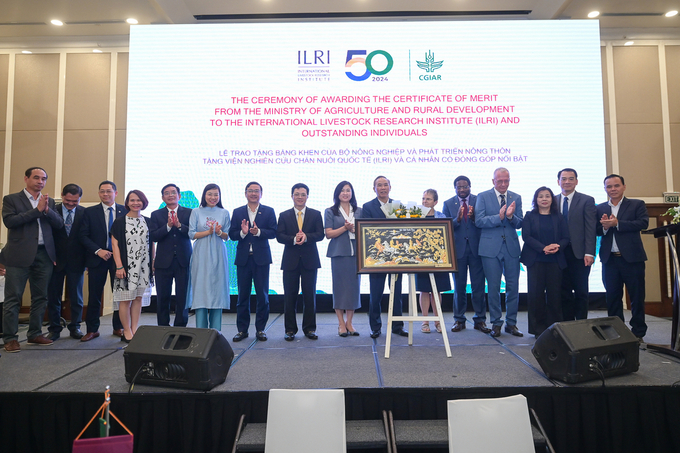
As a CGIAR center, the world's largest agricultural research network, ILRI will strengthen collaboration with global development organizations, leverage 4.0 technologies, and harness the strengths of stakeholders, particularly MARD—ILRI’s strategic partner—and inter-ministerial government agencies from central to local levels, to mobilize resources for implementing the 2024–2030 Sustainable Livestock Development Strategy in Vietnam, aligning with the priorities of Vietnam’s livestock sector and the broader Sustainable Development Goals of the United Nations.
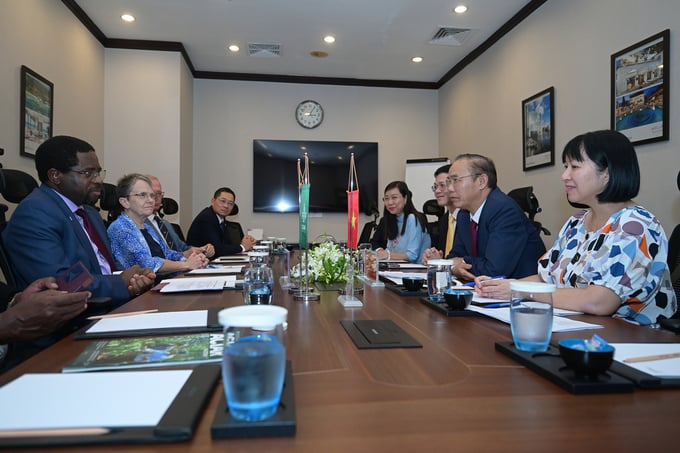
MARD is honored to be chosen as ILRI’s research and investment hub in the region and is confident that with ILRI’s strengths in capacity building and applied research, ILRI will contribute significantly to sustainable food systems, animal health, and climate change response.
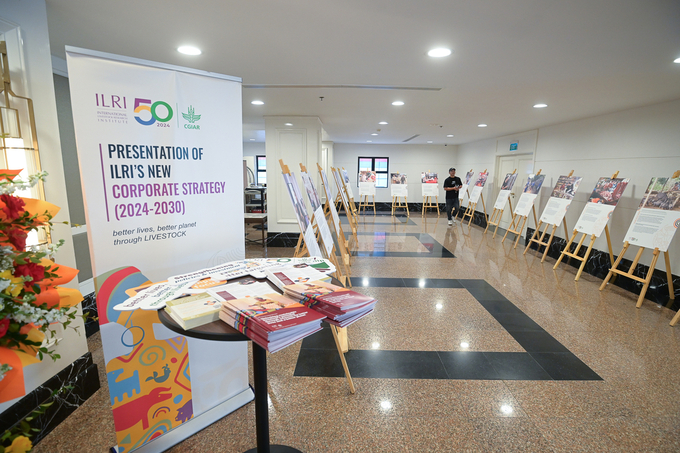
On this occasion, ILRI has reflected on its achievements, lessons learned, and collaboration prospects with Vietnam on sustainable livestock through the new strategy ‘Unlocking sustainable livestock’s potential through research for better lives and a better planet,’ for the period 2024–2030. The Strategy addresses global challenges such as climate change, food insecurity, and sustainable development, improving ILRI’s livestock systems in Africa and Asia, aiming to enhance the livelihoods of 300 million people in low- and middle-income countries.
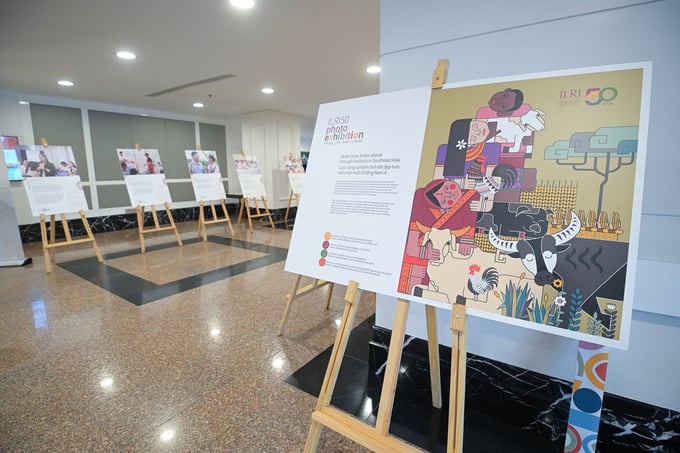
The Strategy sets a goal to design and implement large-scale sustainable livestock solutions based on science, leveraging research to shape policy decisions and investments that have large-scale impacts within the livestock sector in target countries, including Vietnam.
Over the past years of operation in Vietnam, ILRI’s projects have fostered the enhancement of science capacity, contributing greatly to the development of Vietnam’s livestock sector during its international integration, especially in the context of increasing market demands, technical and quality barriers for imported livestock products.
Translated by Linh Linh
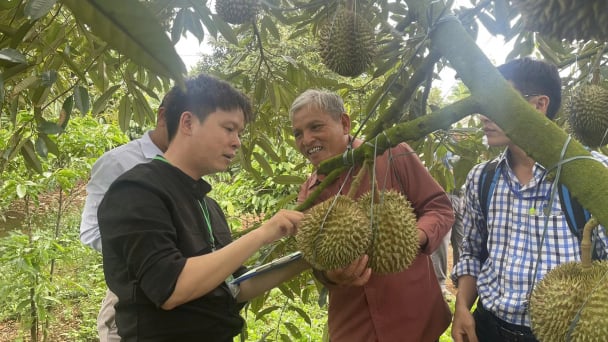
(VAN) For the durian industry to succeed, the value chain must fulfill its commitments to the government, the community, and international partners.

(VAN) Vaccinating juvenile pangasius helps reduce disease, antibiotic use, and farming costs, increasing profits for export-oriented farmers in An Giang.

(VAN) Due to a limited supply of workforce and competitive recruitment requirements, businesses struggle to retain talented veterinary human resources.

(VAN) WOAH’s guidance aims to mitigate disease risks through a One Health approach that balances economic, conservation, and public health interests.

(VAN) Ms. Nguyen Thi Dung, Deputy Director of Ngoc Hoang Cooperative, shared about the journey of bringing dragon fruit to Europe, achieving annual revenues in the billions of VND.

(VAN) Bamboo products from Thang Tho Bamboo Cooperative have reached many countries around the world, while also creating jobs for local workers.

(VAN) The Management Board of Con Dao National Park reported that a green sea turtle, tagged in the Philippines, has traveled thousands of kilometers to lay 84 eggs on Bay Canh Islet.